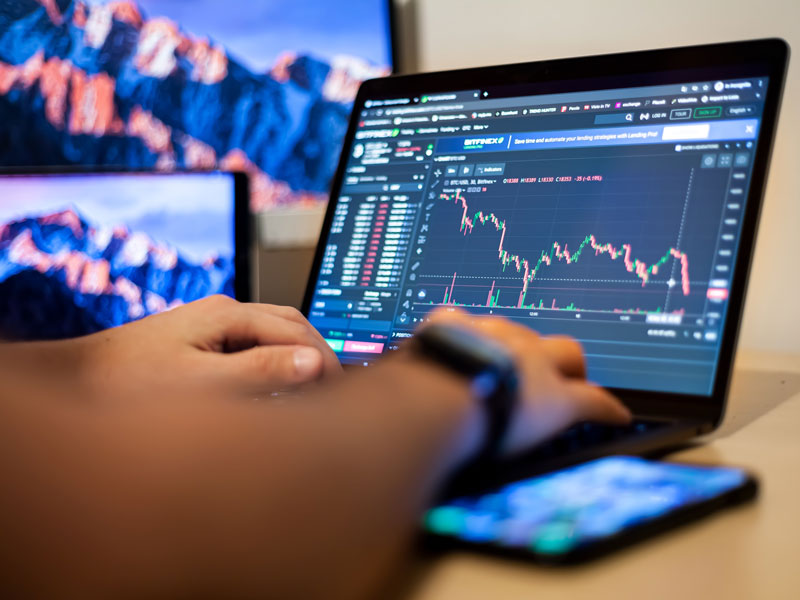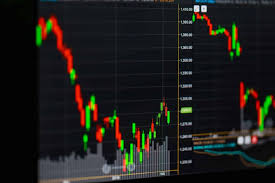
Forex Trading for Beginners: Your Ultimate Guide
Welcome to the exciting world of forex trading! For those new to financial markets, forex (foreign exchange) trading might seem daunting. However, with the right knowledge and skills, anyone can become a successful trader. In this guide, we’ll cover the basics of forex trading, providing you with the essential tools to get started. If you’re looking for reliable brokers to guide your journey, check out the forex trading for beginners Best Indonesian Brokers.
What is Forex Trading?
Forex trading involves buying and selling currencies to capitalize on the fluctuations in their exchange rates. Unlike the stock market, the forex market operates 24 hours a day, making it a dynamic space for traders around the globe. With an average daily trading volume exceeding $6 trillion, forex is the largest financial market in the world.
Key Terms to Know
- Currency Pair: Currencies are traded in pairs, such as EUR/USD or GBP/JPY. The first currency is the base currency, while the second is the quote currency.
- Pip: The term ‘pip’ stands for ‘percentage in point’ and represents the smallest price movement that a currency pair can make.
- Leverage: Leverage allows traders to control a larger position size with a smaller amount of capital. For example, a leverage ratio of 100:1 means you can control $100,000 with just $1,000 of your own money. While this can magnify returns, it significantly increases risk.
- Spread: The difference between the bid price and the ask price of a currency pair. Understanding spreads is crucial for determining the cost of trades.
Getting Started with Forex Trading
Before diving into the forex trading world, here are some key steps to follow:
1. Educate Yourself

Knowledge is your best friend in forex trading. Begin by learning the fundamental concepts, market strategies, and analysis techniques. Various online courses, webinars, and forums can help you build a strong foundation.
2. Choose a Trading Style
Different traders adopt varying trading styles based on their availability and risk tolerance. Here are a few popular styles:
- Scalping: This style involves making dozens or hundreds of trades daily, seeking to profit from small price changes.
- Day Trading: Day traders open and close positions within the same trading day, aiming to capitalize on short-term price movements.
- Swing Trading: Swing traders look for price patterns over several days or weeks, holding positions longer than day traders.
- Position Trading: This long-term strategy involves holding trades for weeks, months, or years, relying on fundamental analysis.
3. Choose a Reputable Broker
Selecting a reliable forex broker is crucial for a successful trading experience. Look for brokers regulated by reputable authorities, with competitive spreads, a user-friendly platform, and responsive customer service. A good broker will also provide educational resources to help you navigate the forex market.
Understanding Market Analysis
To make informed trading decisions, you need to analyze the market. There are two primary types of analysis:
1. Fundamental Analysis
This approach involves evaluating the economic factors that affect currency values, such as interest rates, inflation, and political stability. Keeping up with economic news and reports is essential for fundamental analysis.
2. Technical Analysis

Technical analysis focuses on price action and historical data, using charts and indicators to predict future movements. Familiarize yourself with various tools like moving averages, RSI, and Bollinger Bands to enhance your technical analysis skills.
Building a Trading Plan
A trading plan outlines your strategy, goals, risk tolerance, and criteria for entering and exiting trades. Here’s what to include:
- Trading Goals: Define your short-term and long-term objectives.
- Risk Management: Determine your risk tolerance and how much capital you are willing to risk per trade.
- Entry and Exit Rules: Specify the conditions under which you will enter or exit a trade.
- Performance Review: Regularly evaluate your trading results and adjust your plan as necessary.
Psychological Aspects of Trading
Trading can be emotionally taxing. To succeed, develop a strong mindset that allows you to handle losses and maintain discipline. Here are key psychological traits to cultivate:
- Patience: Good traders wait for the right opportunities and avoid impulsive decisions.
- Discipline: Follow your trading plan and remain consistent in your approach.
- Resilience: Learn to bounce back from losses and view them as part of the learning process.
Start Small and Scale Up
When you’re ready to start trading, consider beginning with a demo account. This allows you to practice your strategies in a risk-free environment. Once you feel confident, start trading with a small live account and gradually scale up as you gain experience.
Conclusion
Forex trading offers exciting opportunities, but it requires commitment, discipline, and a willingness to learn. By understanding the fundamental concepts of forex trading and developing a strategic approach, you can navigate the markets effectively. Remember, it’s essential to stay informed, practice continuously, and refine your strategies as you progress on your trading journey. With patience and dedication, success in forex trading is within your reach.

